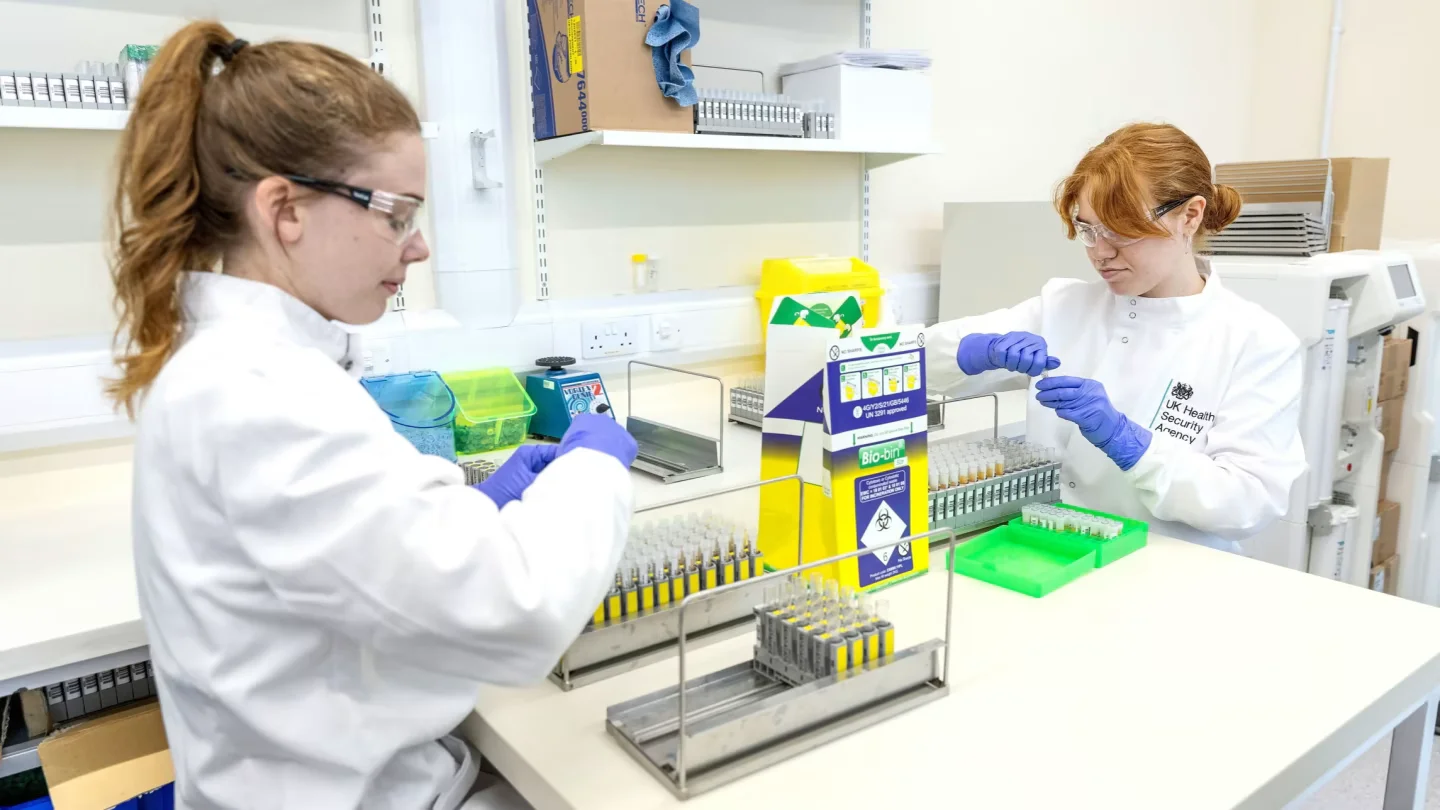Gaining unprecedented access to the tightly guarded premises of a remote facility, a select group of scientists are quietly making history. Nestled within the cutting-edge Vaccine Development and Evaluation Centre at Porton Down, these experts are on the frontlines of the global battle against the Covid pandemic. Their mission extends beyond the immediate crisis, aiming to save lives and mitigate the need for future lockdowns when faced with emerging diseases.
The CEO of the UK Health Security Agency (UKHSA), Prof Dame Jenny Harries, paints a vivid picture of the broader context, stating, “Covid is undoubtedly not an isolated incident.” She continues, “We describe it [Covid] as the most significant public health event in a century, yet none of us believe it will take another century before the next one comes along.” Her concerns center around the alarming convergence of climate change, urbanization, and human proximity to animals—a fertile ground for numerous emerging diseases with the potential to cross into human populations.
Located within the serene landscapes of Wiltshire near Salisbury, Porton Down stands as a global hub for the study of some of the most virulent viruses and bacteria. Behind containment freezers lie pathogens such as Ebola, while adjacent structures house the Defence Science and Technology Laboratory, which played a pivotal role in confirming the use of the nerve agent Novichok in the Salisbury poisonings.
Originally conceived as part of the emergency response to Covid, the vaccine laboratories, ensconced within unassuming dark green structures, have shifted their focus as the urgency of the pandemic has waned. This novel research hub for vaccines targets three categories of threats:
- The mounting challenges posed by well-established infections, including the rise of antibiotic-resistant superbugs.
- Potential triggers for crises, encompassing threats like avian flu and evolving Covid variants.
- The enigmatic “Disease X,” an unforeseen pathogen akin to Covid that has the potential to take the world by surprise.
Central to the operation is collaboration—with pharmaceutical companies, scientists, and medical practitioners—across all phases of vaccine development.
Within Porton Down’s walls, scientists are currently dedicating their efforts to creating an initial vaccine for Crimean-Congo Hemorrhagic Fever. This tick-borne ailment, claiming roughly a third of its victims, is prevalent across Africa, the Balkans, the Middle East, and Asia, with climate shifts exacerbating its potential to spread.
Simultaneously, the facility evaluates vaccine efficacy. An insightful discovery made here is the Omicron variant’s ability to elude certain protections conferred by existing Covid vaccines.
The constant vigilance over new Covid variants involves cultivating them within laboratory confines, subjecting them to antibodies from blood samples, and assessing their infectious potential.
Meanwhile, an array of vital machines—named “Qui-Gon,” “Obi-Wan,” “BB8,” and “Palpatine”—plays a pivotal role in combatting the widespread avian flu outbreak. The H5N1 avian flu virus has ravaged bird populations, with routine tests among farm laborers revealing asymptomatic cases. Impressively, the team’s testing capacity has surged from a mere 100 samples per week pre-pandemic to a staggering 3,000.
This collective effort is part of the “100 Days Mission,” an audacious endeavor to develop vaccines against emerging threats within just one hundred days. A stark contrast to the historical timeline of vaccine creation and testing, which spanned a decade.
The exceptional circumstances of the Covid pandemic led to the production of the first Covid vaccines within a year, with distribution commencing in December 2020, and an estimated preservation of over 14 million lives in the initial year of deployment.
Prof Isabel Oliver, Chief Scientific Officer of UKHSA, envisions the potential impact if these vaccines had been accessible even slightly earlier. She suggests, “While they were produced faster than ever before in history, we could have preserved more lives and hastened the return to normalcy.”
As the world grapples with the ongoing challenges of Covid and anticipates potential future threats, the insights gained from Porton Down’s relentless pursuit of scientific understanding and innovative solutions hold the promise of bolstering global readiness. Prof Harries underscores the significance of proactive measures to prevent pandemics, moving beyond reactive responses to intercept nascent outbreaks at their inception. The stage is set for a new era of preparedness, shaped by the lessons learned and the advancements made within the walls of this pioneering research enclave.




